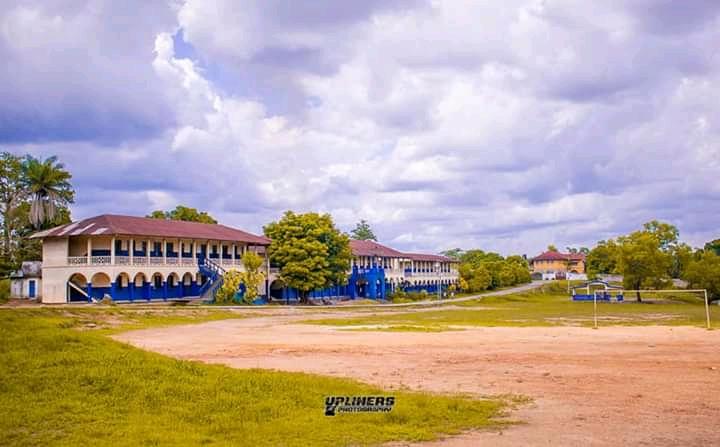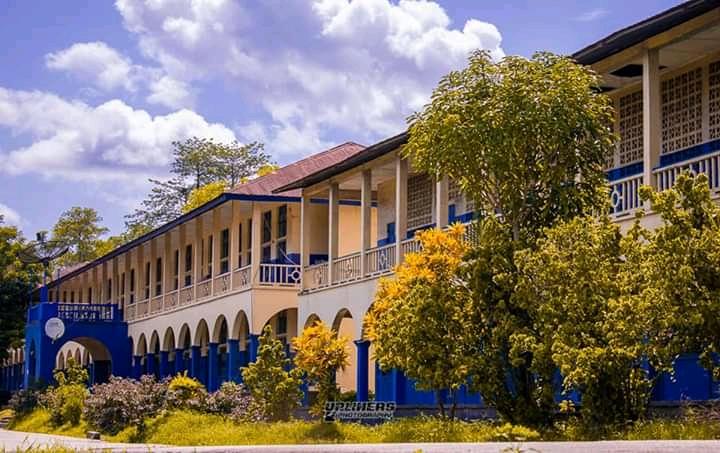COBA
UK Logo
Charity Number: 1083860
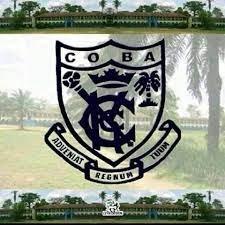
|
|
|
|
|
|
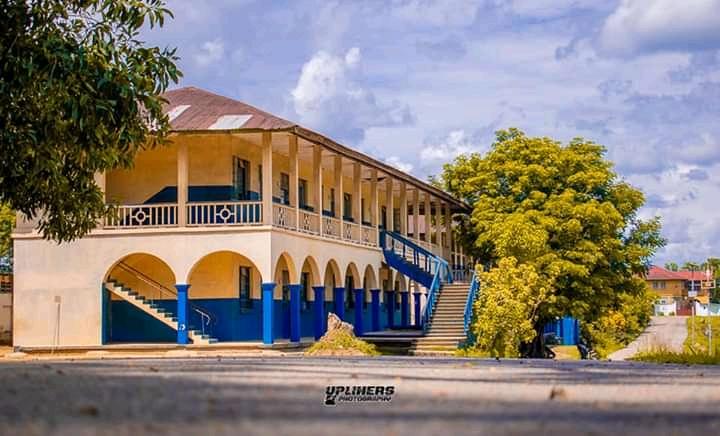
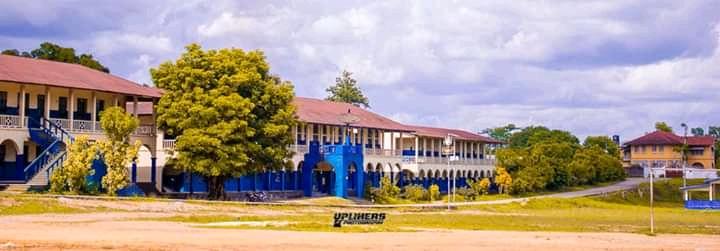
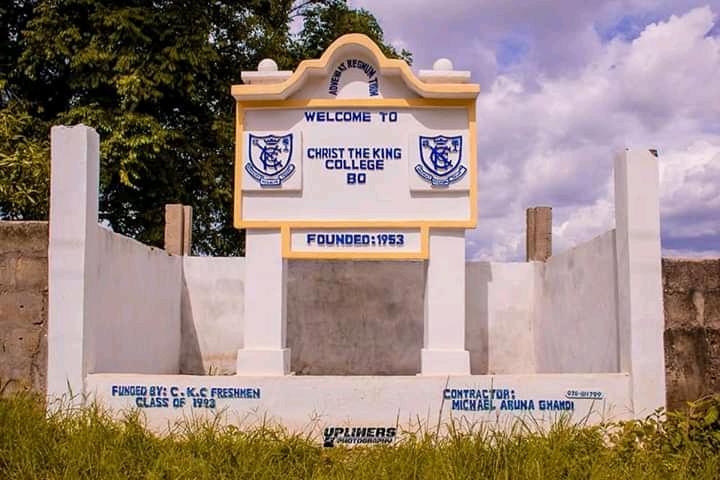
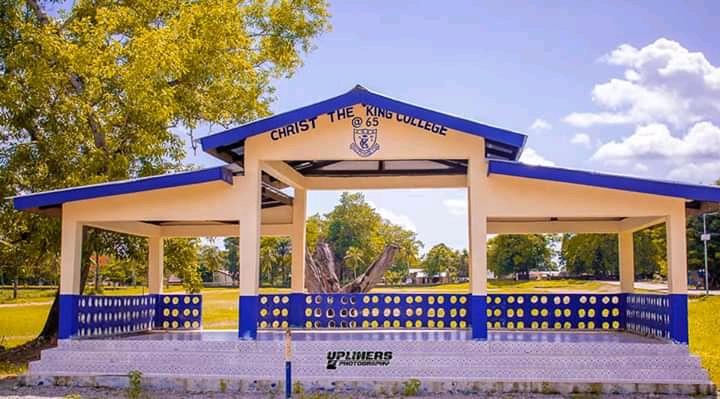 ABOUT COBA UK
ABOUT COBA UK
COBA UK is an acronym for Christ The King College Old Boys’ Association, which was coined in 1982 by a group of ex-pupils of Christ the King College who were resident in the United Kingdom, hence the adjunct UK to the acronym COBA.
The idea of the UK branch of the Ex-pupils’ Association of Christ The King College was conceived during a visit in 1979 to Sierra Leone. It was around the time of the Silver Jubilee of the founding of the school, and preparations were being made for the celebrations. A guest of honour was also expected for the occasion in the person of the first principal of the school, Rev. Fr Corbett, who was returning from Dublin where he had retired.
The Ex-pupils were jubilant at the idea of seeing him after so many years as he was looked upon as the God Father of the school who nurtured it from cradle after its establishment in 1953 at the St Francis Mission School site in Bo, Sierra Leone. As the first principal, he had put the school on a good footing in the country and many of the first pupils were of high standing in the administration of the country and some held senior positions in service in the country, including engineering, lecturers and medical doctors.He was a big guest coming back to the school he had established 25 years ago in the rural area of Sierra Leone.
It is important to note here the work this man had put into building an educational institution which was meant to cater for the poorer population of the rural area of the country, in contrast to the older established Bo Govt School, which was built for the sons of Paramount Chiefs and ruling heads of clans in the Provinces of Sierra Leone.
CKC was established as a sister school to St Edwards Secondary School in Freetown, as a Catholic Mission educational establishment to mirror the ethos and performances of the older Mission school away in the Provincial Headquarter- Bo, in contrast to the Bo Govt School, which was not a designated religious educational establishment.The school when founded had many facilities which do not exist today in any educational establishment in Sierra Leone such as:
1. Modern laboratory for teaching the sciences which was more equipped for secondary education, including biological specimens and botanical garden.
2. Fully stocked library with all sorts of books, from novels, comics and textbooks to reference books for research purposes in education.
3. Sports equipment for cricket, lawn tennis, gymnastics, football, table tennis, volleyball, and athletics.
4. The school supplied free text books, exercise books and writing materials to every pupil on demand from the school bookshop which was located between the Principal’s office and the library.
This level of equipment and preparedness of the school coupled with abled teaching staff helped to push CKC far ahead of peer secondary schools in Sierra Leone.
By 1979, economic conditions in the country were changing. The political system had changed from modern democracy to a One Party State under Siaka Stevens. Things were going downhill, both economically and in education. Numbers in classes were going up from 25/30 to over 50, books were in demand in schools but not available even to buy. There was no longer the sort of facilities which some of us enjoyed in our days in the school. That is what prompted the formation of the UK branch of CKC Ex-pupils’ Association, as it was then called.
Upon my return to London in 1980, I contacted few ex-pupils that I knew in the UK in order to galvanise ideas to establish an ‘Old Boys’ Association’, but it was a daunting task. I had time on my hands since I was unemployed. The other few people I knew were either very busy at work or had very busy schedules.
Discussions with Ambrose Ganda who had similar passion and views like me led to the formation of the group with several difficulties to overcome.He was extremely busy in full time employment, and was also producing a Sierra Leone-focused News Bulleting, SLAM which preceded the “Focus On Sierra Leone” in the UK, which analysed critically the operations of the One Party System in Sierra Leone, almost as the voice of the opposition.
We worked on ways to fertilise the idea of the Alumni branch formation while looking for other ex-pupils to join in the venture. We met outside his office at St Catherine’s House, Holborn after office hours and will proceed to the lobby of Great Queen Street hotel on Great Queen Street, Convent Garden to discuss plans on the way forward.By 1982, our number increased from two to five, so we explored holding meetings on Saturdays in my flat in Hackney. By 1983, Thames Television was promoting ethnic group organisations and we got a slot where I appeared with Ambrose to appeal to former teachers and ex-pupils of CKC to join us to further our project plans for an Alumni Organisation branch in the UK.
In 1983, we launched the organisation in Camberwell supported by One World Linking Initiative (OWLI) based in Leamington Spa, represented by Jane Knight, who was their Co-ordinator and a former teacher Norman White who got in touch after the Thames TV programme.Norman White was VSOpersonnel, taught English language and History in the school. Hewas my teacher for both subjects in 1965 when I was in Form III. We also had amongst us Lawrence Kamara, who had just completed his PhD at London University that year.
The first launch of COBA UK had six members, namely: Ambrose Ganda who became first Chairman of COBA UK, Anthony Sheriff - General Secretary,Ken Kowa- Publicity Secretary and Thomas Legg– Treasurer, Patrick AnsuKaikai, and Edward Alie. These posts were held until 1988 when elections ushered in(late) Francis Wilson as Chairman, but the executive did not function as Francis Wilson left for Saint Kitts in the Caribbean.COBA UK became a Phoenix which would rise from its ashes. Like any organisation, issues gave rise to challenges within the organisation and at times tempers boil over and people walk away, attendance at meetings drop to zero, but we were able to revive COBA UK on three occasions through the efforts of few members who formed the core of the organisation in 1991, namely:
Ambrose Ganda – retired from the Executive but remained actively involved.
Anthony Sheriff- Chairman in the wake of the 1991 revival
Augustine Alpha – Ex-Officio and signatory to COBA UK account
Augustine Fofana – Organising Secretary
Kebbe Kouroma – Treasurer COBA UK
Columba Blango – Ex-Officio
Matthew Sesay – General Secretary and signatory to COBA UK accountAmbrose Ganda took leave of all executive functions of COBA UK in 1989 because he was pursuing other matters that needed closer attention and time to be devoted, but he shadowed us to direct and help with fundraising activities. Unfortunately, Ambrose died on 10th April 2003 after contracting meningitis.
The last revival of our Phoenix happened in the home of (late)DaudaLumeh in 1991, when the membership remarkably grew and has remained buoyant until now. DaudaLumeh relocated to Sierra Leone in the mid-1990s and unfortunately succumbed to the CoVid virus in 2021 - may his soul rest in perfect peace.In 1991, COBA UK was officially launched as a registered Charity in the UK with Charity registration number 1083860, with the main objective to facilitate conditions in the school that are conducive to learning. COBA raised sufficient funds to purchase 10 computers and a printer for establishment of an ICT classroom in the school, but the lack of quality electricity supply forced the use of generators to power the computers but the voltage surges damage the power supplies of the machines.
COBA UK established a means tested grant scheme in the school to help alleviate economic hardship which most pupils were experiencing. The grants covered different categories from books, tuition and boarding home fees.Grant money was raised from a Micro Credit facility which the executive operated to raise sufficient funds to meet our grant needs. The interest gained from the Micro Credit scheme was used to augment donations, particularly from Ms KenyehKarimu who championed our grant project.
In 1994 COBA UK launched a project to feed the crocodile because schools were suspended during the rebel war years and it dawned on the membership that the animal would starve to death. The Association planned to build a pen with an aquarium extension for the animal, but it was never to happen before the animal died in 2020.
In 1996, an appeal was launched to fund sports equipment and kits for the school. Kits and equipment such as Lawn tennis and volleyball nets, a weather proof Table Tennis table and bats were acquired and shipped to the school. An appeal to refurbish the tennis courts was also launched and the Association received a donation from Sal Bolton towards the refurbishment, which has yet to be done because the amount required for the refurbishment is slightly high, so we need to raise more money for this project.
COBA UK agreed to contribute to the world wide COBA fund to build extra classroom in order to relieve the two-shift school day in the school and in 2016, COBA donated £7,000.00 to the parent body in Sierra Leone towards that project, which unfortunately has been poorly delivered below expectations.
The CoVid – 19 pandemic has not been sympathetic to COBA UK as we have lost members of families of the Association, for whose souls we ask God to grant perpetual rest, Amen.
Membership, Executives and Committees
Please click here for full details.
|
Registered
by: |
Donors/
Sponsors: - Sal Bolton: Lawn Tennis Project - Ms Kenye Karemo: Scholarship Program - Alison Ganda: Principal's Office IT Network - Ken Jackson: Staff and Education support |
Partners: |
All Rights Reserved |
|![]() |
||
|
||
Website designed by Alfred Syl-Turay Consultancy MCITP

